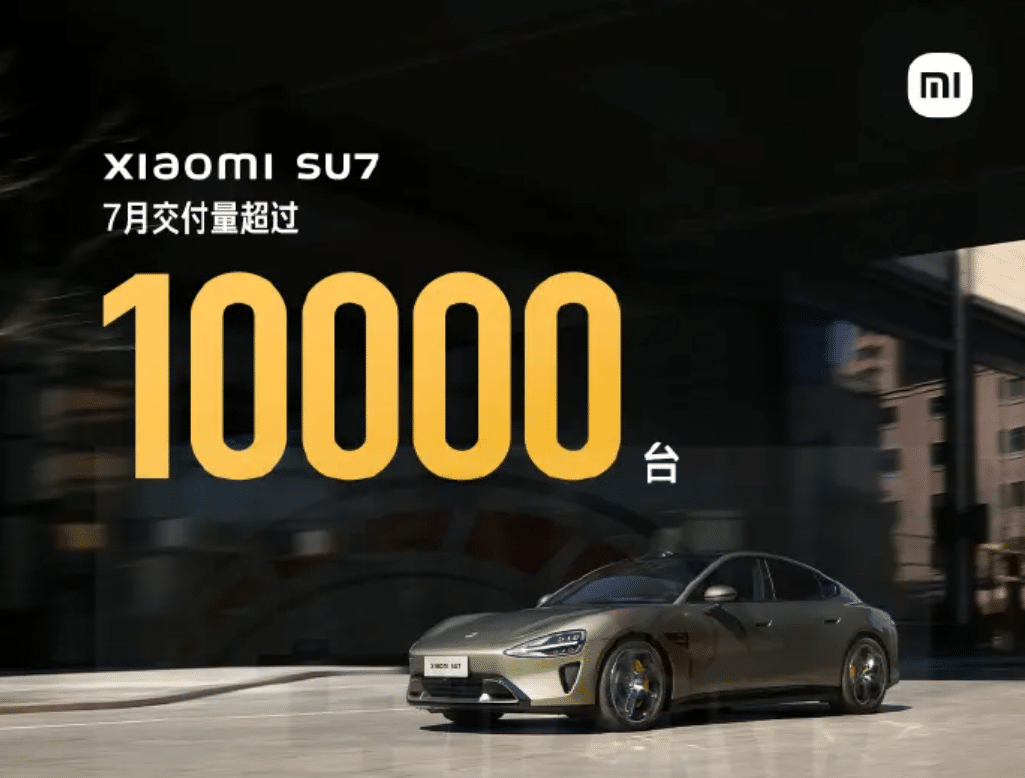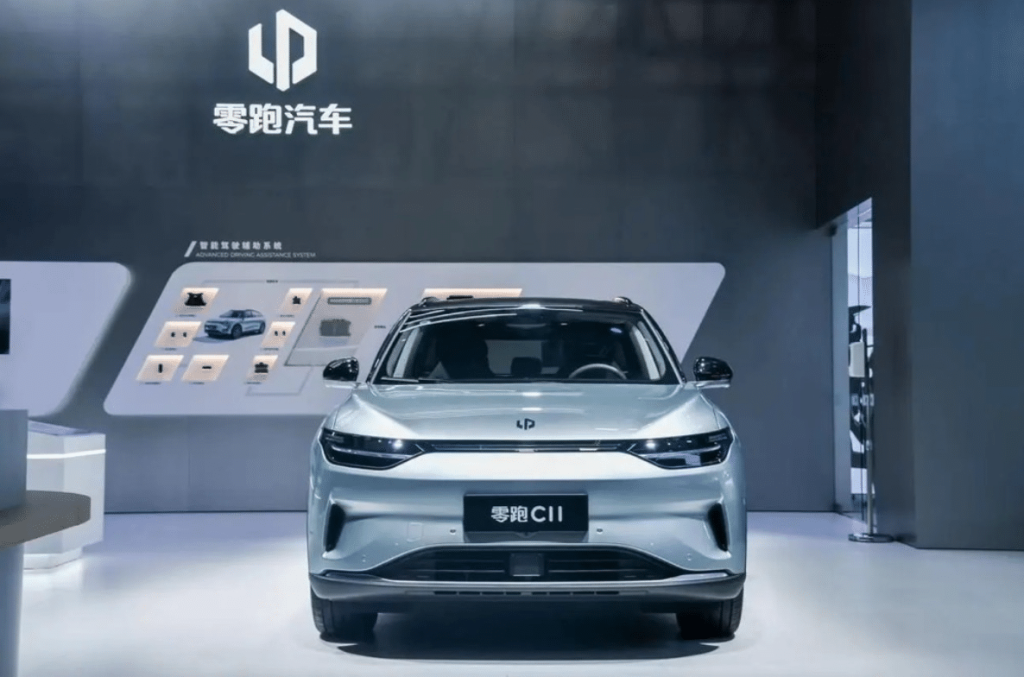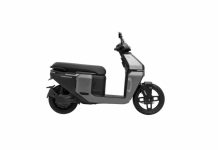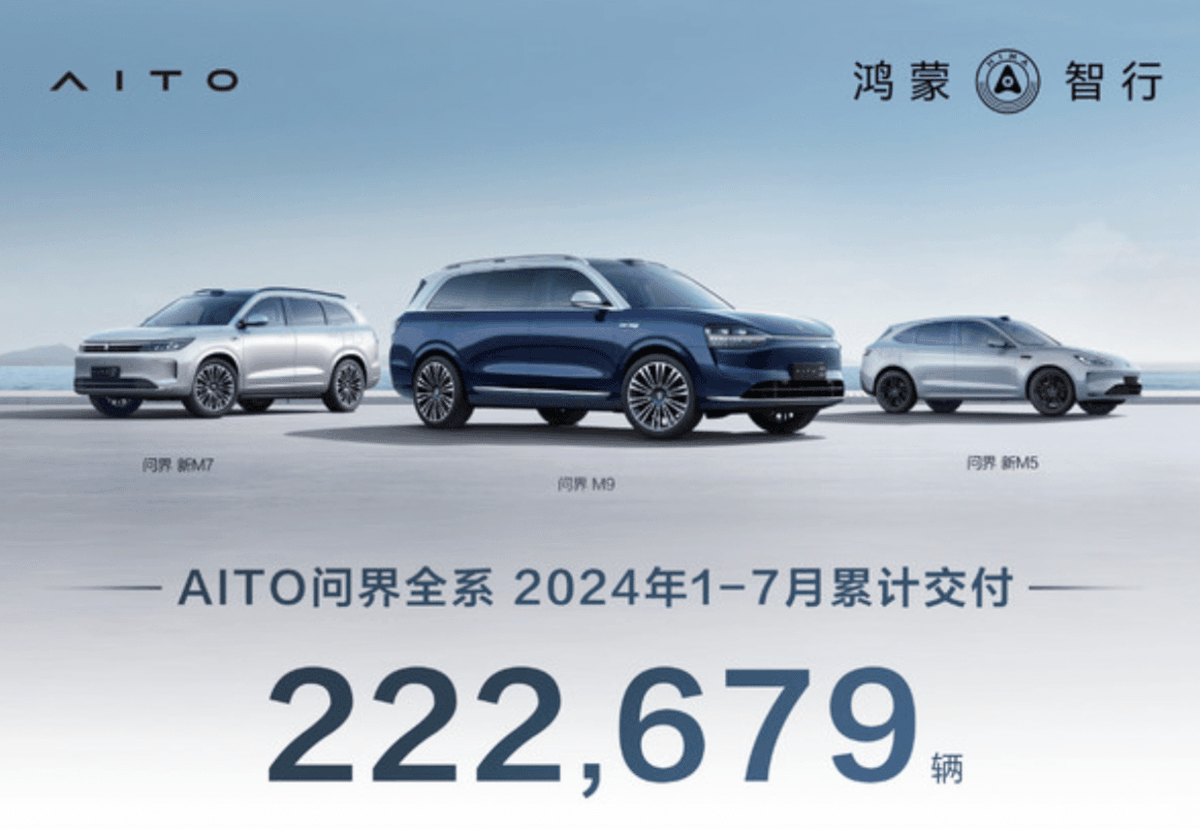The electric vehicle (EV) wave is sweeping across the globe, and nowhere is this more evident than in China.
The Chinese NEV (New Energy Vehicle) market is not just booming; it’s transforming at an unprecedented pace.
In July 2024, a new crop of automakers—collectively referred to as the “emerging NEV automakers”—are making waves.
Brands like Li Auto, Aito, and Leapmotor are not only competing with established giants but also carving out significant market shares.
Let’s dive into the latest sales figures and explore how these companies are driving the NEV revolution in China.
Li Auto: Leading the Charge in the NEV Revolution
Li Auto has emerged as the undisputed leader among the new wave of Chinese NEV automakers.
With 51,000 vehicles sold in July 2024. The company saw a remarkable 49.4% increase year-on-year and a 6.8% month-on-month growth.
This is a trend. From January to July, Li Auto delivered 239,981 vehicles. Bringing their total deliveries to an impressive 873,345 vehicles.
Li Auto’s success can be attributed to its innovative product lineup, particularly the Li ONE and Li L9 models, which combine electric propulsion with range-extending capabilities.
This unique approach addresses the range anxiety issue that many potential EV buyers face. Making their vehicles an attractive option for long-distance travel.
The brand’s focus on smart features and a seamless user experience has also resonated well with tech-savvy Chinese consumers.

Aito’s Impressive Growth and Strategic Positioning
Aito, a key member of the Harmony Intelligent Mobility Alliance (HIMA), has been making headlines with its robust sales performance.
In July, the brand sold 41,535 vehicles, with notable contributions from the M9, M7, and M5 models.
The company’s cumulative sales for the first seven months of 2024 reached 222,679 vehicles, a testament to its growing popularity.
What sets Aito apart is its strategic partnership within HIMA, alongside Luxeed and Stelato.
This collaboration has enabled Aito to leverage shared technologies and resources, accelerating its growth trajectory.
The brand’s focus on luxury and high-performance NEVs has also attracted a discerning customer base, eager for a premium electric driving experience.
With the production of their 400,000th vehicle in late July, Aito is clearly on a roll, riding the wave of a 942% year-on-year increase in sales.
Leapmotor’s Leap into the Top Three
Leapmotor is another rising star in the Chinese NEV market.
The company secured its spot among the top three emerging NEV automakers with 22,093 units sold in July, marking a 54.1% year-on-year increase and a 9.8% growth month-on-month.
From January to July, Leapmotor’s cumulative sales reached 108,789 vehicles.
The brand’s success can be attributed to its diverse product lineup, which includes models like the Leap C11 and Leap C01.
These vehicles offer a compelling mix of affordability, advanced technology, and stylish design, making them appealing to a wide range of consumers.
Leapmotor’s focus on expanding its production capacity and enhancing its technological capabilities has positioned it well for continued growth in the competitive NEV landscape.

Nio’s Steady Performance Amidst Rising Competition
While Nio didn’t make the top three, it still delivered a respectable 20,498 units in July. The company has been a pioneer in the Chinese NEV market, known for its premium electric SUVs and sedans.
Nio’s steady performance amidst rising competition reflects its strong brand loyalty and customer satisfaction.
Nio’s unique selling proposition lies in its battery-swapping technology and a robust network of Nio Houses—exclusive spaces that offer a blend of lifestyle and automotive experiences.
This holistic approach to customer engagement has helped Nio maintain a loyal customer base, even as new players enter the market.
With plans to expand its model lineup and enhance its autonomous driving features, Nio is well-positioned for sustained growth.
Xiaomi’s Quiet Yet Steady Entrance into the NEV Market
Xiaomi, a brand synonymous with smartphones and consumer electronics, is quietly making inroads into the NEV market.
While the company hasn’t disclosed exact sales figures, it reported sales exceeding 10,000 units in July, with expectations for continued growth in August.
Xiaomi’s entrance into the NEV space is part of its broader strategy to diversify its product portfolio.
Leveraging its expertise in smart technology and consumer electronics, Xiaomi aims to bring a unique perspective to the automotive industry.
The company’s focus on affordability and cutting-edge technology could make it a formidable player in the coming years, especially among younger, tech-savvy consumers.
The Bigger Picture: NEV Market Trends and Future Projections
The performance of these emerging NEV automakers must be viewed within the broader context of the Chinese automotive market.
In July 2024, the overall Chinese domestic passenger car market experienced a slight decline, with approximately 1.73 million units sold, a 2.0% decrease year-on-year.
However, the NEV segment remained robust, with 860,000 units sold, representing a 34.1% year-on-year increase.
The penetration rate of NEVs is expected to rise to 49.7%, reflecting the growing consumer preference for electric and plug-in hybrid vehicles.
This trend is driven by several factors, including government incentives, advancements in battery technology, and a growing public awareness of environmental issues.
As infrastructure for charging and battery swapping continues to improve, and as automakers introduce more affordable and capable models, the NEV market in China is poised for continued growth.
Conclusion: The Future of Mobility in China’s NEV Landscape
The sales performance of emerging Chinese NEV automakers in July 2024 paints a picture of a dynamic and rapidly evolving market.
Brands like Li Auto, Aito, Leapmotor, and Nio are not just competing but thriving, each with its unique strengths and strategies.
As new players like Xiaomi enter the fray, the competition will only intensify, pushing innovation and driving growth.
For consumers, this is an exciting time, with more choices than ever before.
The shift towards NEVs is not just a trend; it’s a movement that’s reshaping the future of mobility.
As we look ahead, the focus will undoubtedly be on sustainability, technological advancements, and creating seamless, enjoyable driving experiences. The journey has just begun, and the road ahead is electrifying.
































